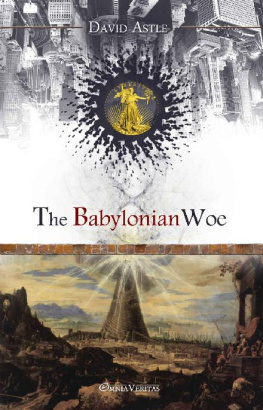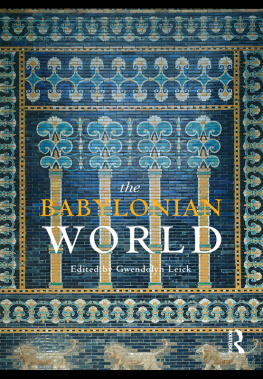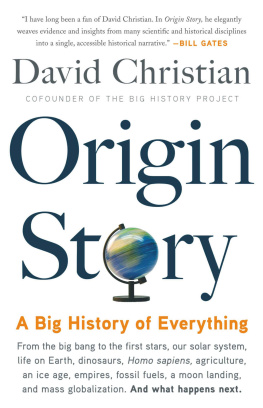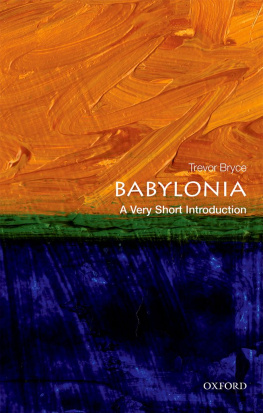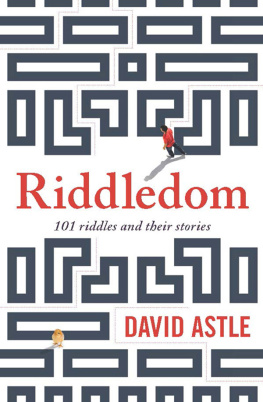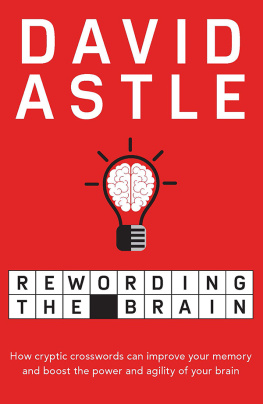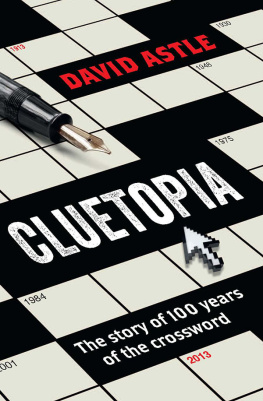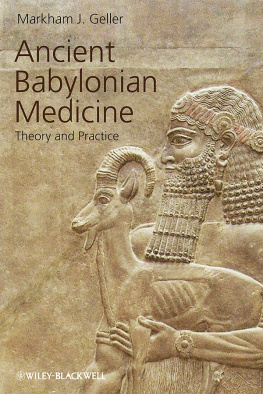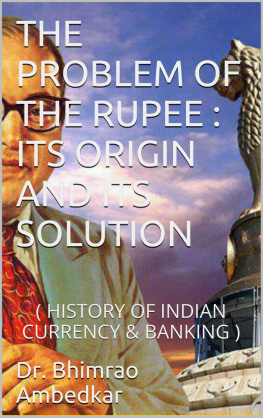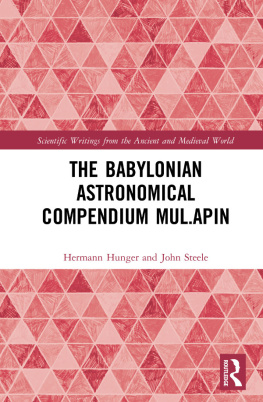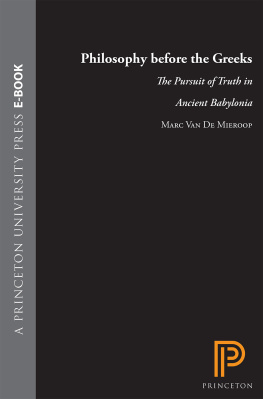David Astle
The Babylonian Woe
A Study of the Origin of Certain Banking Practices,
and of their effect on the events of Ancient History,
written in the light of the Present Day.

The Babylonian Woe
By David Astle
A Study of the Origin of Certain Banking Practices,
and of their effect on the events of Ancient History,
written in the light of the Present Day.
First Edition - 1975
Published by Omnia Veritas Ltd

www.omnia-veritas.com
The intellectual faculties however are not of themselves sufficient to produce external action; they require the aid of physical force, the direction and combination of which are wholly at the disposal of money, that mighty spring by which the total force of human energies is set in motion.
Augustus Boeckh; Translated;
The Public Economy of Athens , p. 7;
Book I. London, 1828.
Table of Contents
Foreword
For money has been the ruin of many and has misled the minds of Kings . Ecclesiacticus 8, Verse 2.
W hen I originally approached my study as best as I might, dealing with the growth in pre-antiquity and antiquity of what is known as the International Money Power, and the particular derivative of the money creative activities of such International Money Power that might be defined as the Life Alternative Factor, I did so with some diffidence. Perhaps I was overly conscious of what seemed to be the inadequateness of my preliminary training in these matters and that in no way could I describe myself as deeply conversant with the languages of ancient times, or, in the case of Mesopotamia, their scripts.
However, in my preliminary studies involving checking through the indices of a number of those standard books of reference dealing with the ancient civilizations, I soon found that any feelings of inferiority in so far as the adequacy of my scholarship relative to my particular subject was concerned were unwarranted, and that qualms in these respects were by no means justified.
In almost all of such books of reference, except those that classified themselves as economic or monetary histories, was practically no clear approach to the subject of money and finance, or to those exchange systems that must have existed in order that the so- called civilizations might come to be. In the odd case where the translations of the texts might reveal some key clue, no more special emphasis was placed herein than might have been placed on the mention of a gold cup, a ring, a seal, or some exquisite piece of stone work.
In Jastrows Assyria there was no reference to money at all; in Breasteds History of Egypt a volume of six hundred pages or so, only brief mention on pages 97-98. In A History of Egypt by Sir William M. Flinders-Petrie, in the records of Sir John Marshall and E.J.C. McKay in respect to the diggings at Mohenjo-Daro, and in the writings of Sir Charles L. Woolley and others on their findings from their studies of the exhumed archives of the city states of ancient Mesopotamia, little enough information exists on the matters referred to above. In Christopher Dawson who wrote widely on ancient times, particularly in the Age of the Gods which dealt with most cultures until the commencement of that period known as antiquity, there is only one reference to money, casual and not conveying much to the average reader; this reference to be found on page 131. In Kings History of Babylon there was practically nothing on these matters.
Thus in almost all of the works of the great archaeologists and scholars specializing in the ancient civilizations, there is a virtual silence on that all important matter, the system of distribution of food surpluses, and surpluses of all those items needed towards the maintenance of a good and continuing life so far as were required by climate and custom.
In all the writings of these great and practical scholars, the workings of that mighty engine which injects the unit of exchange amongst the peoples, and without which no civilization as we know it can come to be, is only indicated by a profound silence. Of the systems of exchanges, of the unit of exchange and its issue by private individuals, as distinct from its issue as by the authority of sovereign rule, on this all important matter governing in such totality the conditions of progression into the future of these peoples, not a word to speak of.
While it is true that the average archaeologist, in being primarily concerned with the results of the forces that gave rise to the human accretions known as civilizations, has little enough time to meditate on these forces themselves, especially since so little evidence exists of what created them, or of how they provided guidance to men in the earlier days, the widespread character of this omission borders on the mystifying. Virtual failure to speculate on those most important matters of all: the structure of the machinery of the systems of exchanges which undoubtedly had given rise to the ancient city civilizations, and the true nature of the energy source by which such machinery was driven, whether by injections of money as known this last three thousand years or so, or by injections of an exchange medium of which little significant evidence or memory remains, is cause for concern. The truth of the lines as quoted herein from Boeckhs Public Economy of Athens (p.ii, present work) is immediately clear to all and that the physical force underlying all civilizations must have been the system whereby surpluses were allocated to the people according to their place in the pyramid of life and to their need; thus, when being controlled by the benevolent law of a dedicated ruler, maintaining at all times the true and natural order of life.
It must not be supposed, therefore, that there is lack of understanding of the importance of these matters; nor that there is any special conspiracy of silence, even though there might indeed be temptation to arrive at such a conclusion. Rather it were better to accept things as they appear, and assume that these scholars merely present the fragments of fact as they unearth them; leaving speculation of the true significance of such fragments of fact in relation to the weft and warp of life, to those considered to be particularly specialized in the various fields represented. In the case of money and finance, the scholars concerned would be classified as economic or monetary historians.
Thus little enough seems to be available on the subject of money and finance in ancient days. Nor seems to exist examination of the significance of such money and finance relative to the progress about which so much has been written in modern times. Apart from that of Alexander Del Mar who wrote in relatively recent days, and apart from that of the philosophers of antiquity such as Plato, Aristotle, Socrates, Zeno, etc., almost no speculation seems to be available from scholarly sources in regards to the unprejudiced Philosophy of money, in ancient times. On the all important subject of the consequences of the creation and issuance of money by private persons as opposed to its creation and issuance according to the will of a benevolent, instructed and dedicated ruler, almost no speculation seems to exist in ancient or in modern times. Of those forces that sought throughout history to undermine any ruler who may have been firmly in the saddle because of his exercise of that prerogative which is the foundation of the State Power or God-Will of which he is the living evincement, insomuch as he maintained firm control of the original issuance of money and its injection into circulation amongst the people as against State expenditures, almost nothing seems to be known. Very little information is available of the means those forces employed towards this purpose through injection into circulation amongst the peoples of silver and gold, and of instruments indicating possession of the same.

